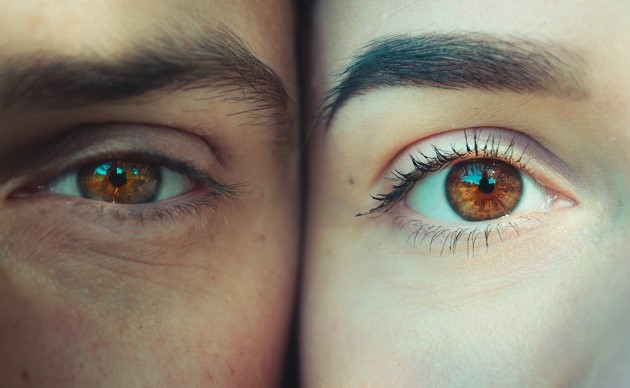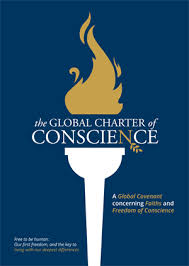We should defend the Universal Declaration of Human Rights. For, if we do not stand up against their erosion or redefinition, we will be consenting by default to enormous injustice.
 Photo: Andrii Podilnyk (Unsplash, CC0)
Photo: Andrii Podilnyk (Unsplash, CC0)
On 10th December 1948, the United Nations General Assembly adopted the Universal Declaration of Human Rights (UDHR).
The European Evangelical Alliance (EEA) chose to mark this 70th anniversary by issuing various social media statements in the week coming up to the actual day, as well as to promoting freedom of religion or belief in Brussels with our partners from the European Platform against Religious Intolerance and Discrimination.
But are we right to celebrate this Declaration? Are we right to treasure it and also the European Convention of Human Rights (ECHR), ratified 5 years later? There are a few reasons for these questions marks.
Firstly, some question the idea of a supranational body, be it the United Nations or the Council of Europe having the right to “interfere” by criticising (or in the case of Europe, making legal judgements against) what happens within nations. Surely every nation is sovereign, every culture is precious, every country should be free to run things their way?
Indeed, national sovereignty and culture and ways of doing things are important. But the UDHR covers the basic foundations for a free, safe and dignified life. There is nothing wrong with the rights mentioned in the text, nor in the ECHR. All people, without exception, deserve these rights. As the UDHR text says, “Whereas recognition of the inherent dignity and of the equal and inalienable rights of all members of the human family is the foundation of freedom, justice and peace in the world...”
Each individual deserves these rights because of the dignity each has. We know that this dignity comes from the fact that each is made in the image of God and, therefore, has infinite value. These rights are inalienable. They are not to be given merely when a government chooses. They are far more important than government policy. That is why sometimes it needs a voice from outside a nation to point out what is wrong.
But this pressure from abroad can be misused. For example, UDHR Article 16 gives men and women the right to marry and states that “The family is the natural and fundamental group unit of society and is entitled to protection by society and the State.” This is fantastic. But some are now pushing for this to be changed to allow for same sex marriage and parenting. This may be democratically accepted in some nations but it is not for the UN to put pressure on other nations to agree.
Similarly, UDHR Article 26 para 3 says “Parents have a prior right to choose the kind of education that shall be given to their children.” But many in the West argue that this cannot possibly mean that parents can ensure their children are not exposed to lessons that violate their beliefs, for example religious or ethical. And some argue that the right to life (UDHR Article 3) only starts at birth but the text does not say that. These human rights are being devalued.
The point of the UDHR is that the rights are “universal,” they stand the test of time because it is impossible for any person who values all other human beings to object to them. The United Nations and the Council of Europe should resist pressure from some nations to push others to limit, devalue or redefine their meaning.
These human rights documents are also questioned within nations, redefining or limiting them in their pursuit of a particular agenda. Clearly, some signatories to the UDHR shamefully allow, for example, torture or unfair legal processes. UDHR Article 14 para 1 states “Everyone has the right to seek and to enjoy in other countries asylum from persecution.” But increasingly, we see governments, with the support of their voters, rejecting this human right by not giving “illegal migrants” a safe and fair chance to argue their asylum case.
THE IMORTANCE OF FoRB AND FREEDOM OF EXPRESSION
The EEA mainly focused on the importance of freedom of religion or belief and of expression (UDHR Article 18 and 19) since these continue to be our public policy priority.
These rights underpin the others. They give all people the right to follow their conscience and to live by the dictates of their conscience.
 The Global Charter of Conscience.
The Global Charter of Conscience. In our increasingly plural societies, these freedoms are put under more pressure but they become even more important. How we can uphold these rights and live together with our deepest differences is explored in the Global Charter of Conscience.
No human rights document is perfect, nor is the interpretation of these rights. But we should celebrate and defend the UDHR and ECHR. For, if we do not stand up against their erosion or redefinition, we will be consenting by default to enormous injustice. So we thank God for those who created the Universal Declaration of Human Rights 70 years ago.
Julia Doxat-Purser, Socio-political representative of the European Evangelical Alliance (EEA). These article first appeared on the EEA website. Re-published with permission.

Las opiniones vertidas por nuestros colaboradores se realizan a nivel personal, pudiendo coincidir o no con la postura de la dirección de Protestante Digital.
Si quieres comentar o